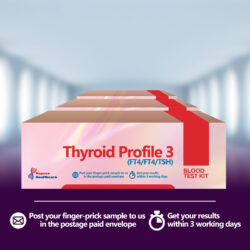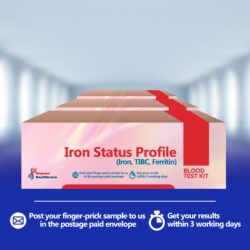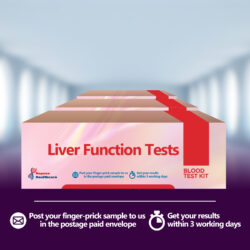The Female Hormone Profile Test measures four key hormones in a blood sample, providing valuable insights into reproductive health, menstrual cycle regulation, and overall hormonal balance. These hormones include:
Follicle-Stimulating Hormone (FSH): Plays a crucial role in the development of ovarian follicles and helps regulate the menstrual cycle. Elevated or decreased levels can indicate potential issues with fertility or ovarian function.
Luteinising Hormone (LH): Works alongside FSH to control ovulation and hormone production in the ovaries. Abnormal levels may suggest conditions such as polycystic ovary syndrome (PCOS) or hormonal imbalances.
Prolactin: Primarily responsible for stimulating milk production after childbirth, but high levels outside of pregnancy can indicate underlying health concerns, such as pituitary gland disorders.
Oestradiol-17-Beta (E2): A form of estrogen that regulates the menstrual cycle, supports reproductive function, and influences bone health. Changes in oestradiol levels can provide insights into menopause, ovarian reserve, or hormonal disorders.
This test is useful for individuals experiencing irregular menstrual cycles, fertility concerns, symptoms of menopause, or hormonal imbalances. It can help guide healthcare decisions and further investigations if needed.















